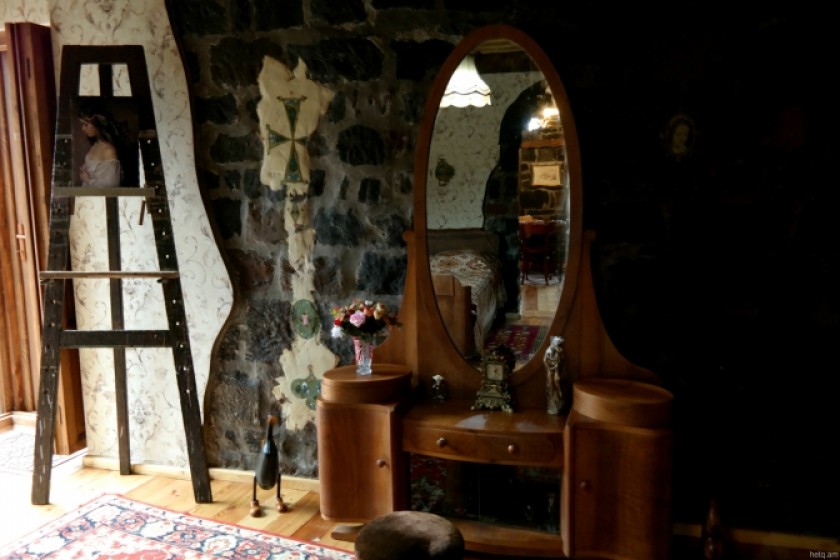
Marina’s Architectural Ethics: Transforming a 19th Century Gyumri Building into a Guesthouse
The Armenian Knight (Hay Aspet) guesthouse is one of the latest examples of beauty in Gyumri, especially popular for its interior furnishings and design.
The building is located on Shiraz Street, in the central part of the historical Gyumri, and within the area protected by the Kumayri Reserve-Museum.
This means that the building owner needs to consult the Reserve-Museum and the Ministry of Culture before and during restoration works.
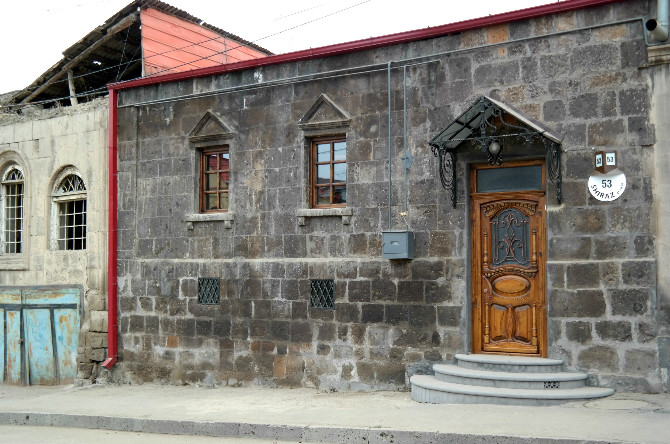
Marina Bazaeva bought the semi-dilapidated house 13 years ago. She had no definite plans about the building back then. The idea of turning it into a guesthouse was born two years ago, when she realized it was necessary to renovate the building.
She decided to renovate and consulted some friends. Kumayri Reserve-Museum employees visited the site once or twice. They never interfered.
"Nobody told me anything. I just knew what was allowed and what wasn’t. People who become owners should realize that it is not only theirs, but it’s also a part of history, of the city, the country.”

Marina
She visited museums in Gyumri to study the nuances of 19th century Gyumri culture and everyday life, to understand what kind of wardrobes, table, chair, rugs would be needed to furnish the guesthouse.
Marina says that many things come from her childhood memories. The Bazaeva’s are partly Armenian, partly Greek. They lived in Gyumri’s Greek District until 1913. Then they emigrated to Armavir, Russia and returned to Gyumri after the earthquake in 1926.
"There are some things from my family’s house, but I found most of the things in different people's houses and huts. For example, I restored these chairs from scratch. I found them in someone’s yard, under the rain, in a very bad state,” recalls Marina.
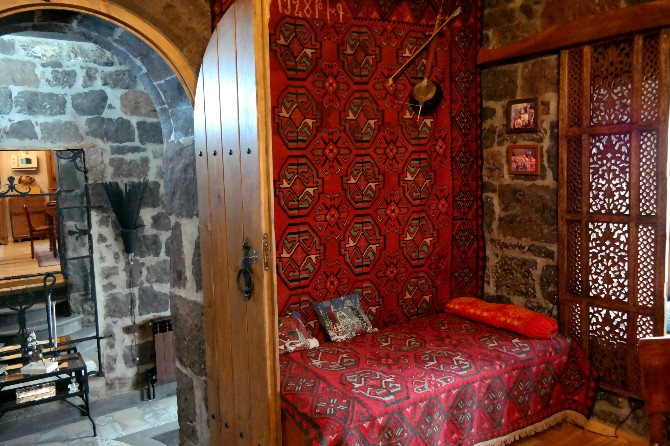
Interior
As for the walls, Marina decided to remove the old Soviet plaster to restore their former appearance. She says that the missing parts have been filled with the same quality of building materials. The floor has been renovated using natural wood. The ceiling was completely preserved, only needing painting. The window frames and the entrance door are also wooden.
Marina says it wouldn’t look nice to have 21st century modern heating radiators in the 19th-century-building. They found a solution for that, too, by heating the wooden floor. The house is not big - just two rooms and a basement.
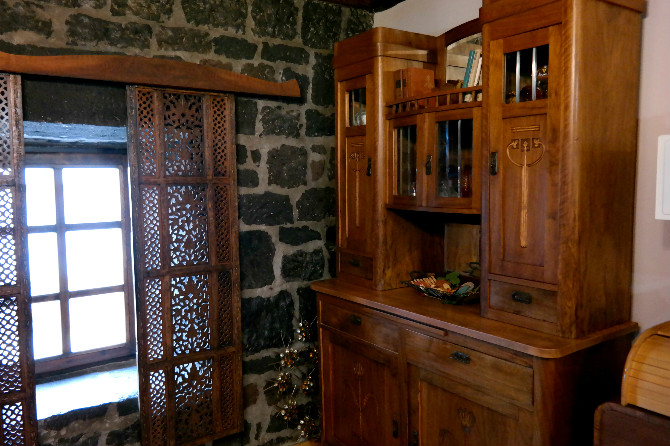
To get natural lighting in the bedroom, Marina preferred a modern solution - a part of the corner wall is made of glass doors. The house originally had just two small windows facing the street, and the owner kept it like that.
"People were telling me that the windows were small, I could make them bigger or add one, but I did not change their size at all. If you look closely, you'll see triangle stones above the windows, and I've restored them. They were falling apart,” says Marina, noting that there are only a few similar houses left in Gyumri. After a long search, she found a stone master who restored the shattered stone segments.
As for the name of the guesthouse - Armenian Knight - Marina says it was decided during the "excavations" in the basement. Some pieces of old weaponry were found.
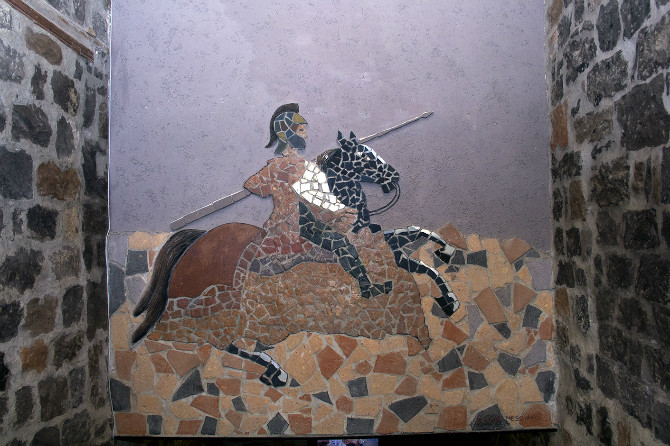
"The specialists said they were left from the time of the Armenian-Turkish war. Perhaps the landlords, those who built the house, had hid their weapons back then. I have always loved novels, stories of royal, knightly epochs and decided that the guesthouse should be called Armenian Knight,” says Marina.
Marina has managed to save and restore one of the 19th-century-houses in Gyumri.It may have no historical or cultural significance as such, but it’s typical of the region’s architecture.
Visitors to the guesthouse can get an idea of how a middle-class Gyumri resident once lived.
Marina has even bought a piano, since having a musical instrument in Gyumri was perceived as a sign of taste.
 Videos
Videos Photos
Photos
Comments (6)
Write a comment